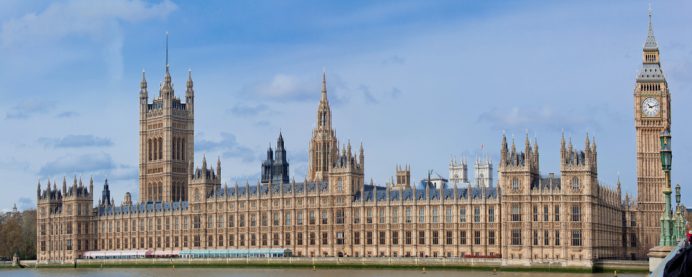The Department for Business and Trade’s consultation on its review of the Package Travel Regulations closed on 30 June 2025. Stewarts has submitted a comprehensive response, drawing on the firm’s extensive experience in handling high-value and complex international disputes. Partner Chris Deacon and senior paralegal Aoife Hay summarise the consultation’s proposals and Stewarts’ response.
Stewarts welcomes the review of the Package Travel Regulations (PTRs), which follows the call for evidence in 2023 (more details about this can be found in the summary of our 2023 response here). The PTRs set out the protections available to consumers who purchase package holidays and linked travel arrangements (LTAs). Our response highlights our concern in ensuring the highest level of protection under the PTRs for individuals who sustain a life-changing injury while travelling overseas or in the UK for holiday or business.
Should the PTRs continue to apply to UK-only package holidays?
The government is considering exempting domestic package holidays that do not include the transport of passengers from the PTRs, on the basis that this may encourage businesses to offer more choice and more cost-effective domestic packages to customers. While the consultation proposes that consumers may benefit from increased choice because of reduced regulatory burdens, consumers would lose the extra protections provided by the PTRs and be forced to rely on general consumer law protections.
In summary, we do not support the proposal to remove some UK-only domestic package holidays from the protections offered by the PTRs. Our response highlighted the following concerns:
- Research has shown that consumers are prepared to pay a premium for UK package holidays due to the protections provided by the PTRs. Removing domestic package holidays from the scope of these protections would disadvantage consumers, reduce choice, increase costs and remove insolvency protections and protections that ensure the proper performance of travel services.
- The creation of two separate regimes for domestic and international travel may result in increased confusion for consumers. UK-only package holidays can be equally and sometimes more expensive than international travel, with similar issues arising if things go wrong. They should not be subject to different regulations or responsibilities on the part of the package organiser.
- Removing some UK-only domestic package holidays would disproportionately affect certain sections of society, including those with lower incomes, senior citizens and those with disabilities who may need or want to avoid international travel.
As a starting point, any changes made to the PTRs must not introduce additional layers of complexity. Our response noted that there is already a lack of understanding of the PTRs, and any amendments must look to improve transparency and consumer trust in the industry.
What are Linked Travel Arrangements (LTAs), and how should they be regulated?
LTAs are formed when a combination of two or more types of travel services is linked, but sold separately under different contracts. The current definition of an LTA is complex, making it difficult for consumers to understand when they have purchased an LTA.
The nature and extent of consumer protections under LTAs are also complex. Consumers may mistakenly believe they are well-protected; however, unlike package holidays, LTAs only provide insolvency protections. LTAs do not benefit from the Regulation 15 protections that apply to package holidays. Regulation 15 holds the package holiday organiser responsible for any lack of conformity during the performance of a travel service forming part of the package. As things stand, consumers of LTAs are at risk of having to rely on alternative means of redress should a problem arise, notably in any claim for personal injury damages following an incident while on holiday.
The UK government’s consultation notes that LTAs are confusing, rarely used and challenging to enforce. In response, the government is proposing to either leave LTAs as they are or retain the LTA category but seek to limit how an LTA can be created. Simplifying the system may include replacing the two LTA types currently in existence with a single definition or introducing additional requirements that might clarify the circumstances under which a trader has facilitated the formation of an LTA.
Our position is that this definition must be simplified. A clear obligation should also be placed on travel providers to ensure consumers are aware of when an LTA has been created and what protections are offered. We recommend that LTAs are incorporated into the definition of a package under Regulation 2 to eliminate confusion for both consumers and providers. This would also extend the package travel protections under Regulation 15 to consumers, providing a high degree of protection for both insolvency and liability issues to a wider range of holiday types and bookings.

What should the government do about insolvency protection and insurance for holiday bookings?
Under the current PTRs, organisers are required to arrange insolvency protection for consumers through bonds, insurance or setting up a trust account (with insurance in place for repatriation). The government is exploring the possibility of making the provision of insolvency protection more flexible for travel organisers by allowing them to combine arrangements, with a mix of trust and insurance or trust and bonding. It is also considering replacing the territorial restrictions on insurance cover for organisers, as policies must currently be held with an insurer authorised in the UK, the Channel Islands or the Isle of Man.
In our response, Stewarts made clear that any amendments to the insolvency protection regime under the PTRs must ensure robust, watertight protections for consumers remain. Consumers should not be forced to rely on alternative legislation, such as the protections under the Consumer Credit Act 1974, which may have varying efficacy and may also be subject to future amendment. Businesses can be allowed more flexibility in how they meet their insolvency obligations, provided there is no detriment to consumers. However, we do not support the proposal to relax territorial restrictions on insurance cover. This could introduce unforeseen risks to consumers and businesses in relation to enforcement and jurisdictional issues in the context of disputes and data protection.
Our response also highlighted further concerns we have previously raised on tour operators not currently being required to have compulsory liability insurance. This creates a significant risk for consumers, particularly where a tour operator is underinsured or uninsured for liability for serious injury. By legally mandating that high levels of liability insurance be obtained from insurers within the UK, the PTRs can better protect both consumers and operators involved in potential claims from consumers who have been seriously injured or involved in a fatal accident, with an effective means of redress being available to consumers even if the tour operator becomes insolvent. Chris Deacon outlined why the public needs to be protected from the risks of tour operator insolvency through public liability insurance in this article for PI Focus.
Final thoughts
The current complexities surrounding the PTRs and LTAs create confusion for consumers and increase the risk of satellite disputes. To improve and maintain trust in the industry, any reforms must not create additional complexity or erode protections available to consumers. Instead, any changes should build on the safeguards of consumer protection that underpin the PTRs, making it simpler for tour operators to outline and meet their obligations to customers. We are hopeful that any amendment to the PTRs will address the issues and concerns raised by stakeholders from the personal injury and consumer rights sectors.
Stewarts’ response has been authored by Head of Aviation and International Injury Julian Chamberlayne, International Injury partner Chris Deacon, Louise Morgan and Aoife Hay from our dedicated Knowledge team.
You can find further information regarding our expertise, experience and team on our International Injury page.
If you require assistance from our team, please contact us.
Subscribe – In order to receive our news straight to your inbox, subscribe here. Our newsletters are sent no more than once a month.







